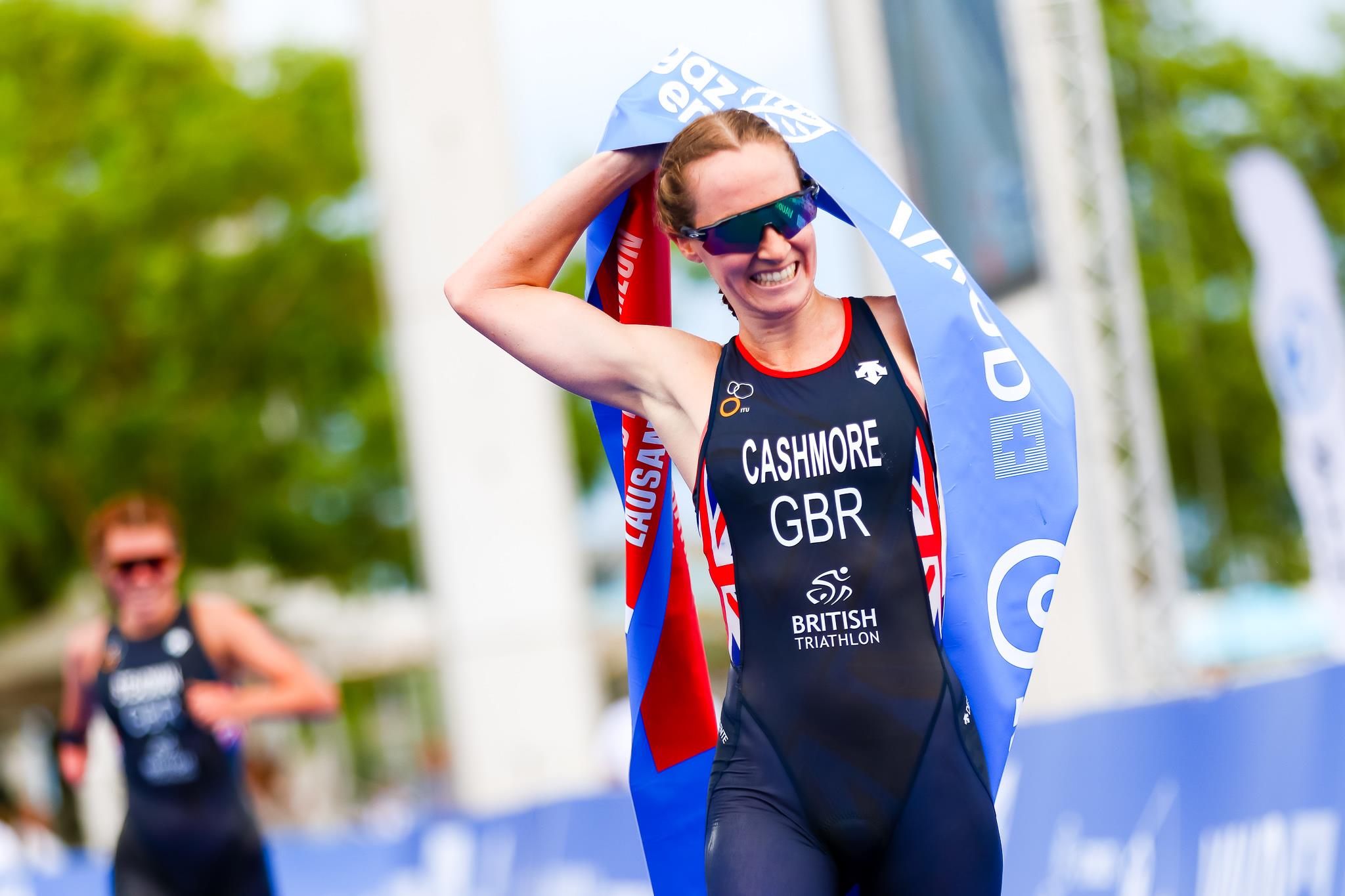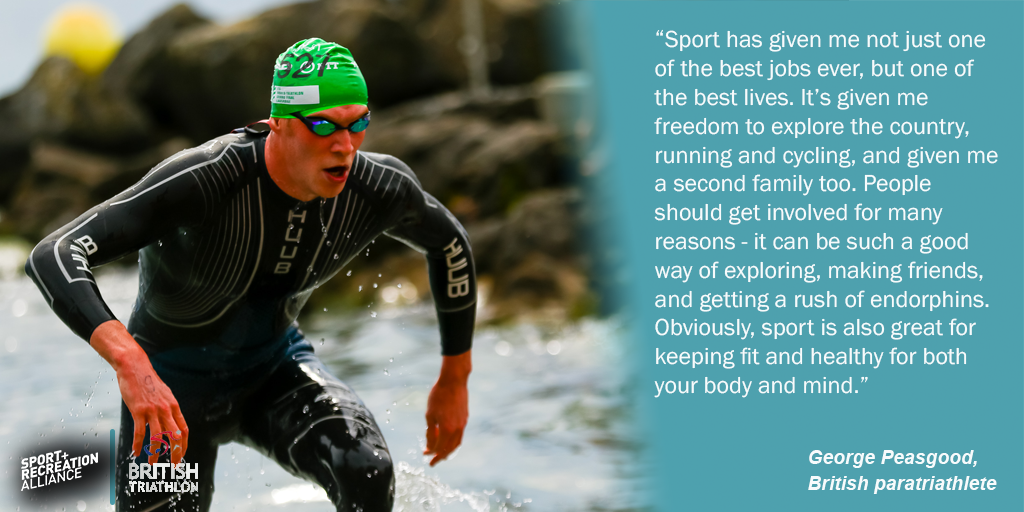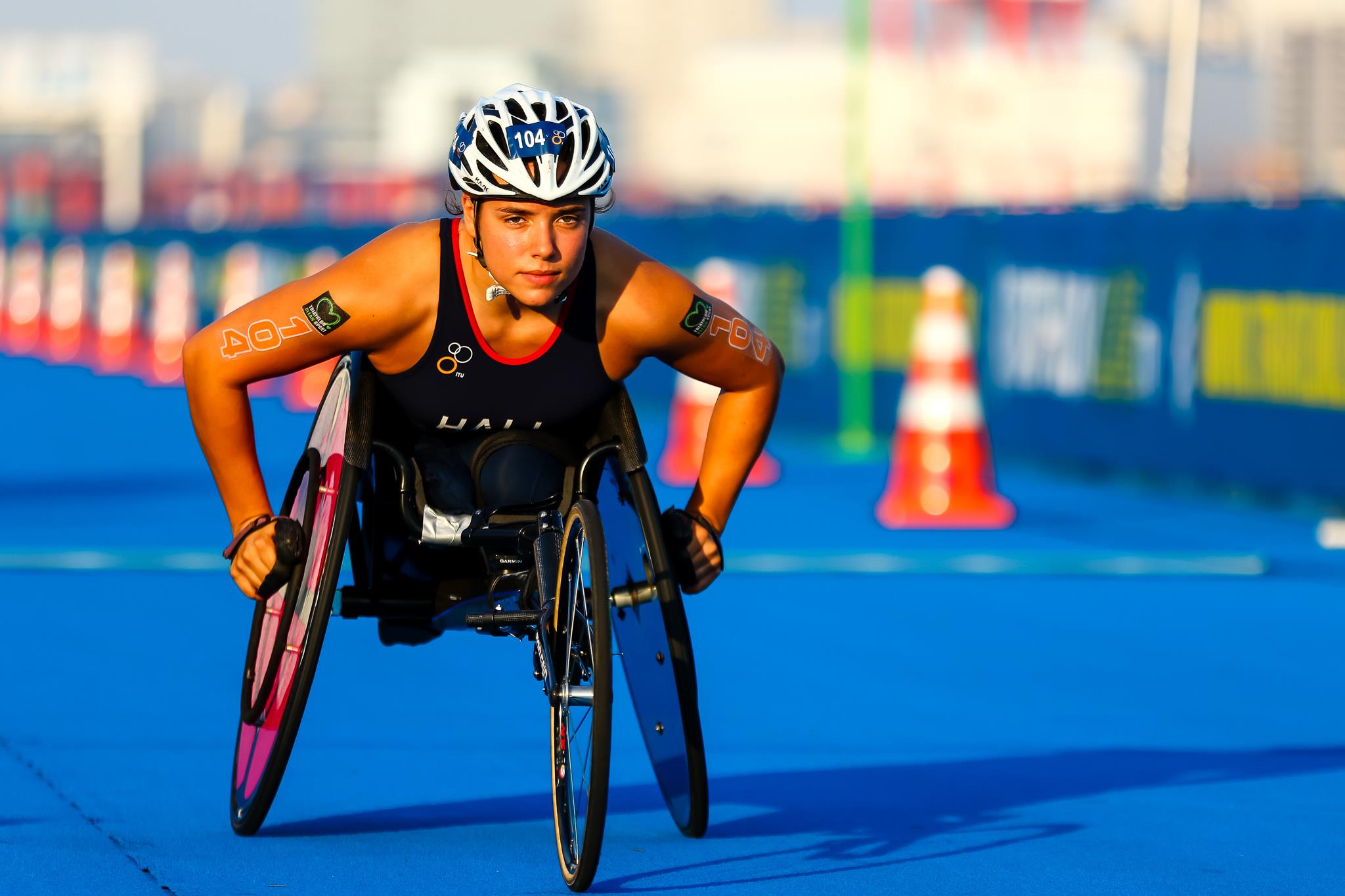From bitterly cold lakes to brutally steep hills to uneven pavements – athletes must endure the greatest of challenges to make it to the finish line.
An exciting addition to the Paralympic programme at Rio 2016, paratriathlon is at the start of its journey on the world stage and there will be plenty of interest when the sport lands in Tokyo next summer.
British Triathlon tell us more about their hopes of ParalympicsGB building on their impressive medal haul from the inaugural event and all the different ways you can get involved.
How did it feel to see paratriathlon make its Paralympic debut in Rio four years ago?
The experience of seeing the team compete in the first Paralympic Games for the sport was amazing. The team won four medals and to see Andy Lewis win gold was a fantastic experience. We also won two silvers and a bronze - it was a great start for the sport at the Paralympic Games.
What are your ambitions for ParalympicsGB going into Tokyo 2020?
Our ambition is for every athlete to be at their best on the start line and feel like they have given everything in their race. We are also excited for the opportunity for more people to see the sport through the Channel 4 coverage and hopefully they will want to give it a go!

Who are your most successful athletes?
Lauren Steadman is probably one of the best known paratriathletes and she is busy preparing to qualify for Tokyo. Andy Lewis won gold in Rio but we have three current world champions in the sport – Claire Cashmore, Fran Brown and Hannah Moore.

Who is a paratriathlon ideal for?
We believe that anyone can take part in paratriathlon. The classifications for the sport cover both visual and physical disabilities.
Our sport is perfect for athletic people with a lot of stamina, or the capacity to develop their stamina to drive through the training and thrive in racing.
Athletes who love training will thrive and have the opportunity to really make great progress in the sport through a lot of hard work.
Here, British triathlete, George Peasgood, explains what the sport has given him.

Do you have any advice for someone dreaming of becoming a Paralympian in your sport?
- The first step is to look for a club and find out where you can get support that is local to you and that you can then access on a regular basis.
- The next step is to get a Paratriathlon classification. The process is very similar in most sports and will involve you having some medical information completed and submitted to the classifiers before attending a classification appointment where you will be assessed and may be asked to swim, bike and run.
- Once you are classified you can start competing in paratriathlon races, but you can also start competing in local races before your classification. For local races, if you need any sort of adaptation (such as more space in transition) then it is important to contact the race organiser in advance to ask for this. You can find out about our national paratriathlon races here and we will keep an eye on athletes as they progress in these races.
- We run a programme to identify athletes who might have the potential to become future members of the British team. At our identification events we look to provide information about the sport and how to reach the top, as well as assessing an athlete’s ability to swim, bike and run/push. Many of our athletes who have been successful are completely new to at least one discipline so don’t let inexperience in the sport put you off!
What about if I want to take part recreationally?
We’d love to hear from you if you are interested in giving the sport a go. We have resources and further information available here.










